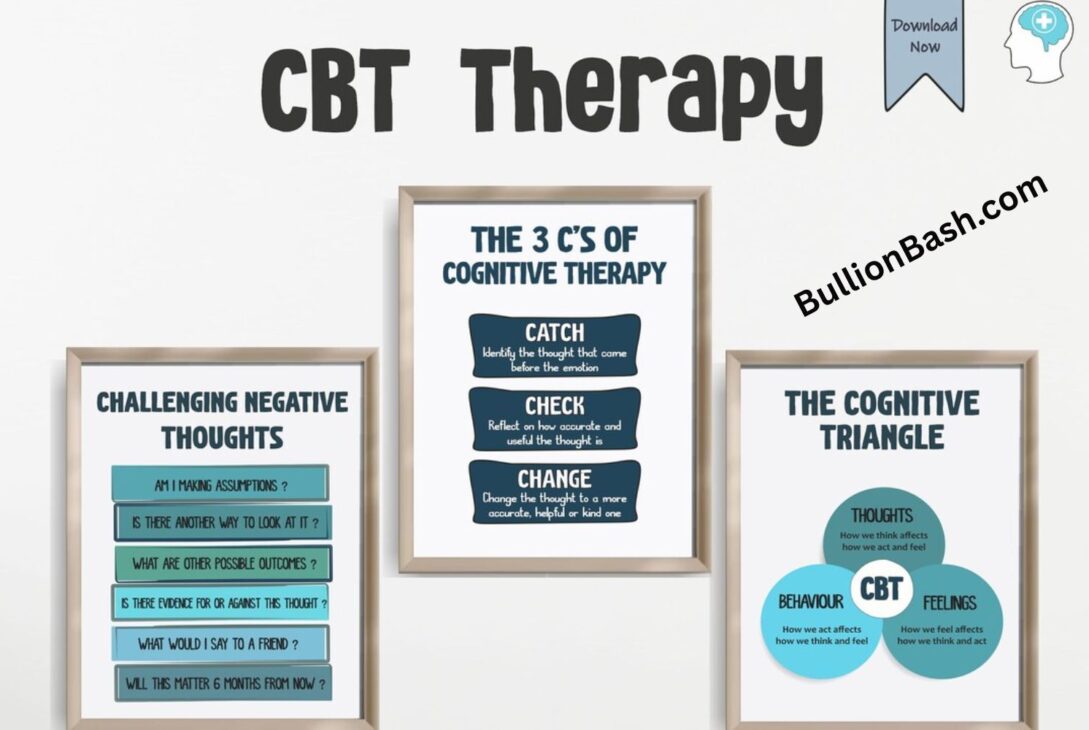Introduction
Let’s be real — when someone types I Hate CBTs into Google, it usually comes from pure frustration. For some folks, CBTs mean those endless computer-based trainings at work or in the military. For others, it means cognitive behavioral therapy — a mental health approach that didn’t click for them. Either way, the phrase reflects real annoyance and sometimes even burnout. In this guide, I’ll break down why people feel this way, which CBT modules are the worst offenders, and how you can actually deal with it instead of silently suffering.
What Do People Mean When They Say “I Hate CBTs”?
CBTs as Computer-Based Trainings (Workplace or Military Modules)
Most of the time, folks are talking about mandatory online training. If you’ve ever been in the military, government, or even a big corporation, you know exactly what I mean. You sit down, log into some outdated platform, and spend hours clicking through slides just to pass a quiz you could’ve answered without watching anything.
CBT as Cognitive Behavioral Therapy (Mental Health Treatment)
On the flip side, some people are talking about therapy. CBT is one of the most common treatments used by psychologists. It’s meant to help with anxiety, depression, and unhelpful thinking patterns. But it doesn’t work for everyone, and that’s where the frustration comes in. People sometimes walk away feeling dismissed or misunderstood.
Why This Phrase Shows Up So Often Online
Search forums, Reddit, and even entire blogs exist just to vent about CBTs. It’s a uniting phrase — everyone has their own reason for hating it, but at the core, it comes down to feeling like your time or effort isn’t respected.
Why Employees and Service Members Hate CBTs (Computer-Based Trainings)
Repetitive and Time-Consuming Courses
You’ve done cyber awareness five times already, but here you are again… clicking through the same training with a new year slapped on the title. It eats away at your day and doesn’t actually teach you anything new.
Poor User Experience and Clunky Platforms
Let’s be honest — most of these systems feel like they were designed in 2003. Slow loading, random errors, and the dreaded “session expired” screen right when you finish a section. It’s exhausting.
Mandatory Compliance Modules That Feel Pointless
A lot of people feel like these training exercises are just box-checking exercises. You’re not actually gaining knowledge; you’re just proving you sat there.
Common Complaints in Military and Corporate Environments
In the military, CBTs have become a running joke. Everyone dreads them. In corporate life, it’s the same story — people just want to do their jobs, not waste hours on outdated modules.
Most Hated CBT Modules (and Why They’re Frustrating)
I Hate CBTs CUI (Controlled Unclassified Information)
The CUI module is notorious. Endless text, confusing examples, and it feels like the same lesson repackaged every year.
I Hate CBTs Force Protection
This one’s packed with information, but let’s be honest — it could be cut in half without losing anything.
I Hate CBTs Cyber Awareness 2025
Cyber awareness is important, sure, but do you really need to repeat the same “don’t click suspicious links” lesson year after year?
I Hate CBTs Derivative Classification
Dry, repetitive, and the quizzes feel like a trick.
I Hate CBTs OPSEC (Operations Security)
The OPSEC module is another infamous one — long, repetitive, and painfully slow.
I Hate CBTs Records Management
Few things make people’s eyes glaze over faster than records management training.
I Hate CBTs Airfield Driving
Niche but dreaded. If you’re stationed on a base, you probably know the struggle.
I Hate CBTs CUI 2024
Yes, another version of CUI. Basically the same course with a new label.
I Hate CBTs Insider Threat Awareness
Important? Yes. But again, painfully repetitive.
I Hate CBTs Controlled Unclassified Information (Duplicate/Updated Modules)
This one often feels like déjà vu because it overlaps with other CBTs.
I Hate CBTs Cyber Awareness 2024
Same as 2025. Same lessons. Same headaches.
I Hate CBTs SERE (Survival, Evasion, Resistance, and Escape)
Valuable topic, but way too drawn out in CBT format.
I Hate CBTs Basic Communication
Another example of something that could be taught better in person.
I Hate CBTs.com (The Go-To Venting Website)
Yes, there’s even a site dedicated to venting about CBTs. That alone shows how widespread the frustration is.
Maintenance Cyber Discipline — Another “I Hate CBTs” Favorite
Another overly technical, repetitive training that many people just want to skip.
How to Survive (and Even Speed Up) CBTs
Practical Tips to Get Through Online Trainings Faster
- Break them up into chunks instead of cramming.
- Use note-taking shortcuts so you don’t forget answers.
- Close distractions — the quicker you finish, the sooner you’re free.
Talking to HR or Supervisors About Training Fatigue
Sometimes, your leaders don’t even realize how draining these modules are. Bringing it up respectfully can lead to more efficient alternatives.
Using Time Management Hacks Without Cutting Corners
Set a timer, knock it out in focused bursts, and reward yourself after.
Can You Legally Skip or Test Out of CBT Modules?
In some cases, yes. Certain organizations allow test-outs if you already know the material. Always check policies first.
“I Hate CBT” in the Therapy World: Cognitive Behavioral Therapy Criticism
Why CBT Doesn’t Work for Everyone
CBT is structured and practical, but that same structure can feel rigid. Some people want deeper exploration, not worksheets.
Common Experiences of Frustration or Harm
A lot of folks feel unheard when therapists rely too heavily on CBT. It can come across as dismissive.
Misconceptions About CBT That Fuel Dislike
Some people think CBT is just “positive thinking.” That’s not true, but poor delivery can make it feel that way.
When to Seek a Different Therapeutic Approach
If CBT leaves you feeling worse, that’s valid. Other therapies may fit better.
Alternatives and Next Steps If CBT Didn’t Work for You
Exploring DBT, EMDR, ACT, or IFS
Other therapies like Dialectical Behavior Therapy, Eye Movement Desensitization and Reprocessing, Acceptance and Commitment Therapy, or Internal Family Systems might resonate better.
How to Talk to Your Therapist About Changing Approaches
It’s okay to speak up and ask for a different method. A good therapist will adjust.
When It’s Time to Seek a New Provider or Method
If nothing’s changing, it may be time to find a therapist who uses a different approach.
Balanced Perspective — The Benefits of CBT (Training and Therapy)
Why Organizations Still Use CBTs for Training
Because they’re cheap, scalable, and meet compliance requirements. It’s not exciting, but it checks the legal boxes.
Evidence-Based Success of Cognitive Behavioral Therapy
Despite criticism, CBT remains one of the most researched, effective therapies for many people.
Recognizing the Difference Between Bad Experiences and the Method Itself
Sometimes it’s not the method — it’s the way it’s delivered.
FAQs About “I Hate CBTs”
Are there safe shortcuts for finishing CBT trainings?
Yes, but be cautious. Some organizations allow test-outs or condensed versions.
Can CBT (therapy) actually make symptoms worse?
It can if it’s a poor fit. That’s why alternatives exist.
What are the best CBT alternatives in therapy?
DBT, EMDR, ACT, IFS, and other evidence-based approaches.
Is it worth complaining about CBT training to HR?
If they waste productivity, yes. Sometimes leadership just doesn’t know.
Why do companies and the military still rely on CBTs?
Mostly compliance and cost reasons. They’re not loved, but they’re efficient on paper.
See Also: The Hole Is Open – Chapters, Reviews & Where to Read
Conclusion — Turning Frustration Into Action
So yeah, I Hate CBTs is a phrase that hits home for a lot of people. Whether you’re stuck in endless online modules or frustrated with therapy that doesn’t feel right, the key is to take action instead of staying stuck. Speak up, explore alternatives, and remember — you’re not the only one who feels this way.


